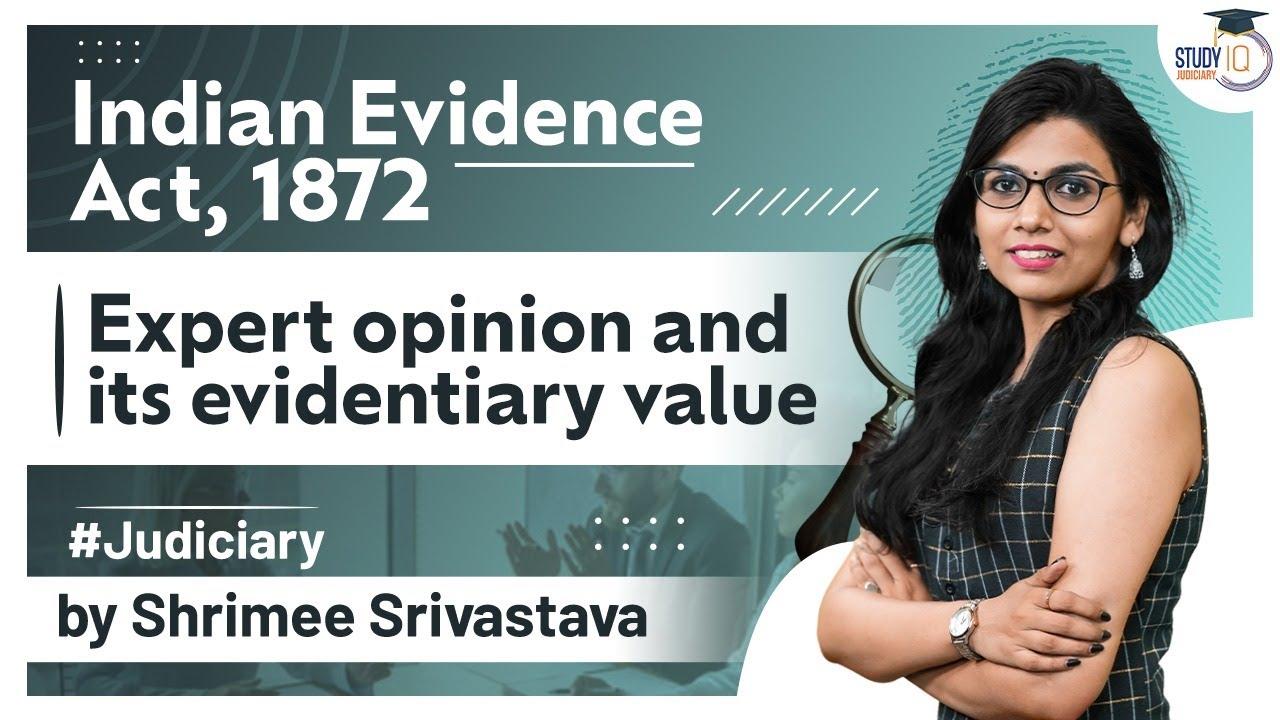Table of Contents
Experts
- In Indian Evidence Act,1872, there is no proper or exact definition of term Expert.
- An expert is one who has made the subject upon which he speaks a matter of study, practice or observation and he must have a special knowledge of the subject.
- It simply means an expert is a person who has special knowledge and skill in any particular subject to which inquiry relates.
Expert Opinion
- Section 45 clearly deals with the opinion of persons who are called experts.
- There are matters mentioned in the section in which help is required from witnesses having experiences and skill and the opinion given by such witness is expert opinion.
Section 45: Opinions of experts:
- When the Court has to form an opinion upon a point of foreign law or of science or art, or as to identity of handwriting or finger impressions, the opinions upon that point of persons specially skilled in such foreign law, science or art, or in questions as to identity of handwriting or finger impressions are relevant facts.
Court will form opinion on the matters-
- Foreign law
- Science
- Art
- Handwriting
- Finger prints or impression
Section 46: Facts bearing upon opinion of experts
- Facts not otherwise relevant are relevant if they support or are inconsistent with the opinions of experts, when such opinions are relevant.
Section 51: Grounds of opinion, when relevant
- Whenever the opinion of any living person is relevant, the grounds on which such opinion is based are also relevant. Illustration An expert may give an account of experiments performed by him for the purpose of forming his opinion.
Evidentiary value of expert opinion:
- As the expert opinion is a weak type of evidence it is usually considered to be of light value.
- The evidence of expert is not conclusive.
- The opinion of the expert is not binding upon a judge and that is why the court can refuse to rely on the evidence of an expert if it is not supported by circumstantial evidences.
- No opinion of an expert is admissible unless he has been examined as witness. The adverse party has a right and opportunity of cross-examining the expert. Before expert testimony can be admitted, “two things must be proved, viz.
- (i) The subject is such that expert testimony is necessary,
- (ii) That the witness in question is really an expert.
Download| Free PDF






















 WhatsApp
WhatsApp